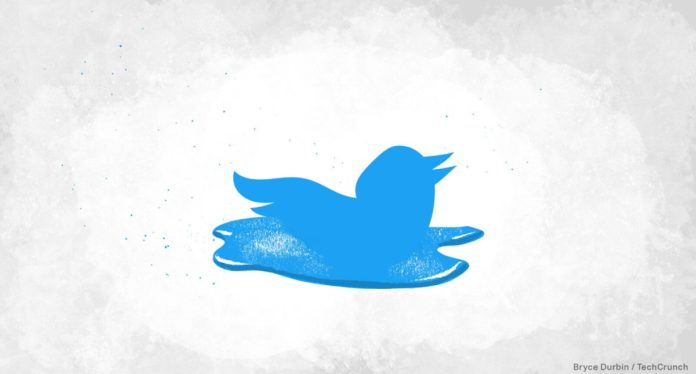Every so often, a new startup crosses your radar and reminds you how exciting hardware can be. It’s a relative rarity in consumer electronics, a category dominated by corporations like Samsung, Apple and Sony, which are (perhaps understandably) somewhat risk averse.
Melbourne-based Nura was one such company. I distinctly remember the startup paying a visit to TechCrunch’s New York offices not long after I started here. The early prototype was a thing to behold — effectively a mess of wires and circuits in a large box. But the point was clear. Turned out wireless audio could be much better than what we’ve slowly grown accustom to over the years.
At the base of the firm’s various headphones was customizable audio profiles, created by mapping the unique architecture of the wearer’s ear. I beckoned a colleague over for a second opinion (and to make sure I wasn’t hearing things). They confirmed that there was, indeed, something next level — frequencies and elements in music that you miss altogether on a different pair.
The startup was recently acquired by Southern California medical device firm Masimo Corporation for an undisclosed sum. Nura will join fellow consumer audio brands under that umbrella, including Bowers and Wilkins, Polk Audio and Denon, which entered its portfolio when it acquired Sound United in April of last year.
The news was announced quietly a couple of weeks back in a press release titled, “Nura Joins Forces With Denon.” What easily might have been mistaken as a partnership deal was actually effectively an acquiring of Nura talent and technology.
“It was important to put the consumer first,” Masimo COO Blair Tripodi tells TechCrunch, when asked about the new reveal. “We chose to highlight the longstanding heritage and sound acoustics of Denon, so that fans would be as excited as we are for the future of Masimo AAT and the possibilities it unlocks.”
Tripodi did, however, confirm the acqui-hire, stating, “Nura was a technology tuck-in and acquisition-hire of engineering talent to support the Masimo Adaptive Acoustic Technology (AAT) platform.”
The company is cagey on specifics here, but the short version is that Nura’s tech is being folded up into Denon’s competing offering. Employees previously involved in research and development Nura will be folded into the same team at Denon. The company didn’t explicitly confirm layoffs, instead offering the line, “Our goal is to retain critical talent and integrate their employees into our business with the goal of advancing our AAT platform.”
It’s simple enough to read between the lines on that one, unfortunately. As for the former startup’s executives, Tripodi says, Nura’s existing leadership team will stay intact and will report into a number of Masimo leaders, depending on department function.
Masimo says that the plans don’t currently effect Nura’s offices, nor is it asking the employees it’s retained to relocate. As for timeline, Nura co-founder and CEO Luke Campbell adds, “Nura’s integration into Masimo AAT is well underway with the goal of bringing personalized audio to more customers around the world.”
In past conversations, Nura has prided itself in remaining fiercely independent. I’ve previously discussed the topics of acquisition or technology licensing, but the startup has long been committed to building its own hardware products. The portfolio grew quickly, as the startup explored various monetization models, including a fairly early exploration of the hardware as a service model, which has been viewed as an increasingly viable strategy for the consumer electronics market.
“It was always our vision to share the award-winning technology with as many people as possible,” Campbells says, when asked about the change in direction. “Masimo and the Masimo AAT platform presented us a chance to improve our existing technology framework, and I couldn’t be more excited about the future. Masimo’s industry-leading signal processing capabilities paired with Denon’s commitment to quality sound, will unlock opportunities that can take the personalized audio space to new heights.”
No one ever said hardware was easy. And while Nura continued to offer a differentiator, the earbud market has grown more crowded with each passing year. It can also be a punishing category for hardware makers who don’t also produce their own handsets. For many — or even most consumers — there’s a benefit in the interoperability of those devices. Often times those who opt for a different option are looking for a less expensive product, and prices has subsequently dropped considerably. Nura’s products, meanwhile, largely sat between $150-200.
Add into that supply chain issues and seemingly endless economic headwinds, and it’s easy to see how the path forward suddenly gets a lot cloudier than it might have seemed three or four years back. Nura declined to comment on what circumstances ultimately led it to sell to Masimo. Co-founder and CEO Kyle Slater left Nura in 2017 and most recently served as the CPO of Melbourne-based medical technology company, Seer. Third co-founder Dragan Petrović left in December.
In the earlier release, the company outlines what the future looks like for existing Nura users, writing, in part:
All Nura products will continue to be supported throughout the warranty period. Existing Nura customers can feel confident that their Nura device will be supported through this transition, including customer support and warranty support. The Nura app will continue to function as it does today, so you will still be able to create personalized hearing profiles and use all app functions.
Masimo says it will sell through the remainder of its Nura inventory, at which point it appears the Nura brand will be fully sunset. The startup’s underlying technology will be a Denon exclusive, moving forward, with no plans to license to third parties. Details on the first Denon product to support the combined adaptive sound technologies will be announced at some point this summer.
Headphone startup Nura gets acqui-hired by Denon parent, Masimo by Brian Heater originally published on TechCrunch
https://techcrunch.com/2023/04/20/headphone-startup-nura-gets-acqui-hired-by-denon-parent-masimo/





